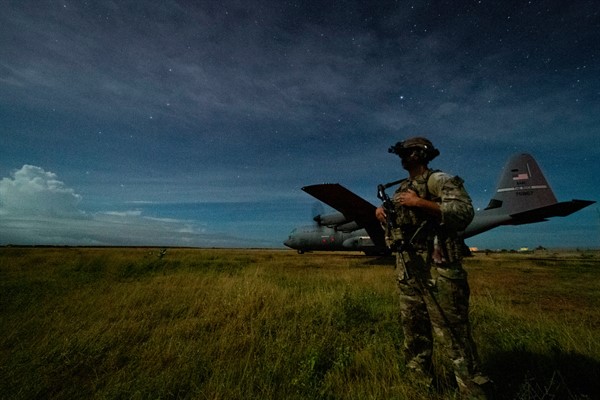In a nod to his campaign promise to end U.S. participation in conflicts abroad, outgoing President Donald Trump ordered the withdrawal of American troops from Somalia last week. The announcement came a week after Trump’s acting defense secretary, Christopher Miller, capped a whirlwind Middle East tour on Nov. 27 with a three-hour stop in Mogadishu, Somalia’s capital. Under the Pentagon’s new reduction plan, nearly all of the 700 special operations forces currently deployed in Somalia are expected to leave on Jan. 15—just five days before President-elect Joe Biden’s inauguration—with many of them redeploying to Kenya. The withdrawal complicates Somalia’s efforts to secure the upcoming parliamentary and presidential elections—which were supposed to begin this month but have been delayed by procedural disputes—and its campaign against al-Shabab, al-Qaida’s resurgent affiliate in Somalia.
The departure of U.S. troops from Somalia is part of a broad, last-minute push by Trump to reduce America’s military footprint overseas, including in Iraq and Afghanistan. The effort is led by Miller, a former officer in the U.S. Army Special Forces and the recent director of the National Counterterrorism Center, whom Trump installed as acting Pentagon chief on Nov. 9 after he fired Defense Secretary Mark Esper following his reelection defeat. While these drawdowns fulfill Trump’s campaign promise to end U.S. involvement in the “forever wars,” they also align with Miller’s previous criticism of America’s participation in conflicts abroad and his belief that the threat of international terrorism is receding—a sentiment that dominated his inaugural memo to Pentagon employees. In September, Miller wrote an op-ed predicting a weakened al-Qaida’s “inevitable demise,” though he recognized the need to maintain “constant pressure” and still “closely monitor terrorist groups.”
Miller’s position on al-Qaida’s diminishing prominence seemingly informed his aborted attempt in October, when he was still director of the National Counterterrorism Center, to isolate and marginalize the contingent of al-Shabab’s senior leadership that maintains close ties to al-Qaida. According to The New York Times, Miller asked the government of Qatar, a key American ally, to explore financial inducements that would inspire organizational revolts by younger al-Shabab fighters, who are ostensibly more nationalistic and less focused on attacking Western targets. But before the Qataris could act, Secretary of State Mike Pompeo got wind of the plan and shut it down.

